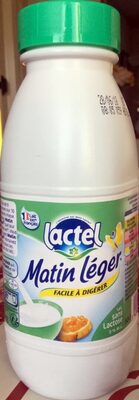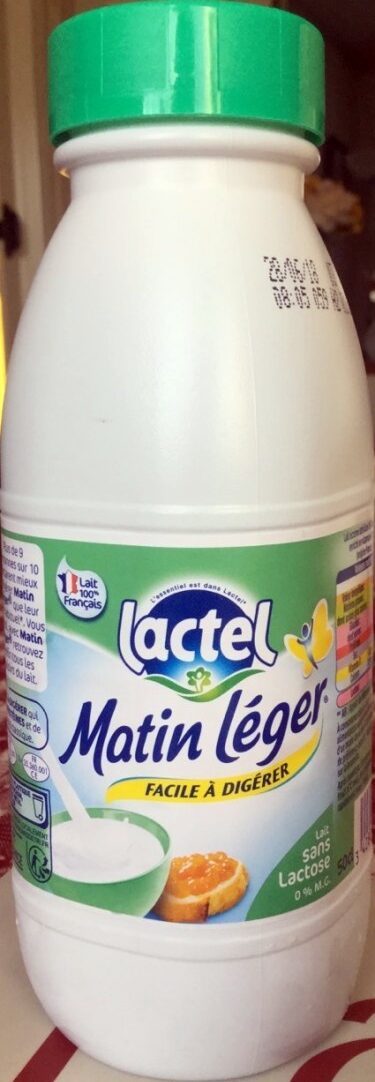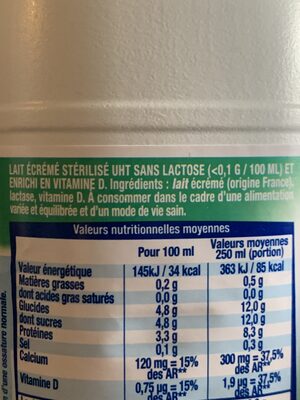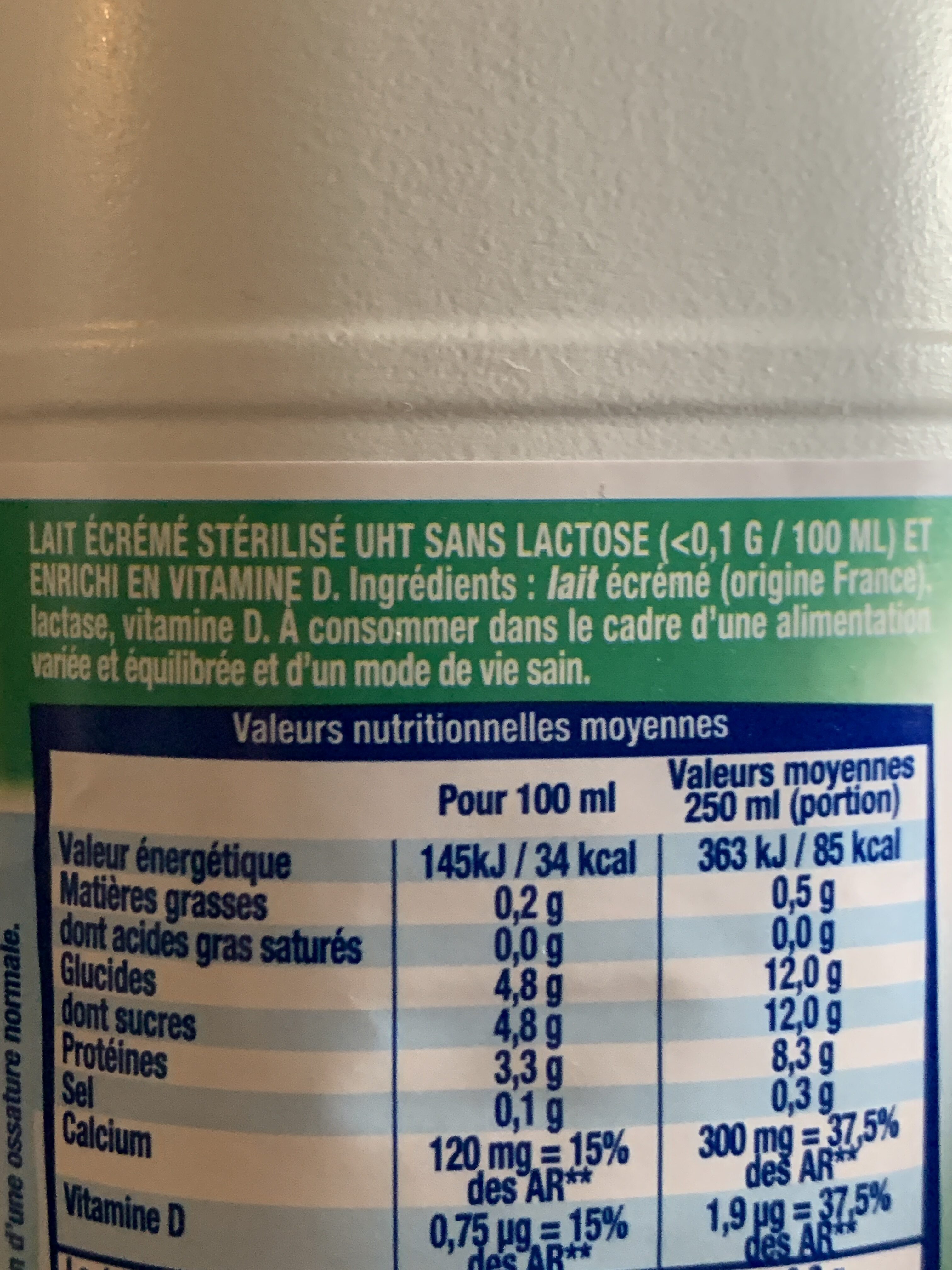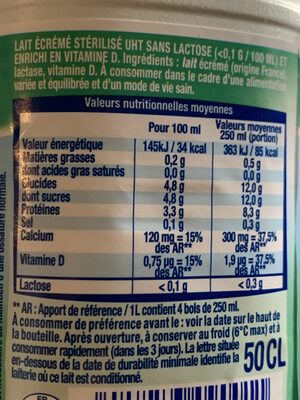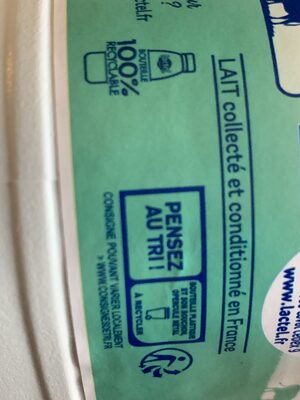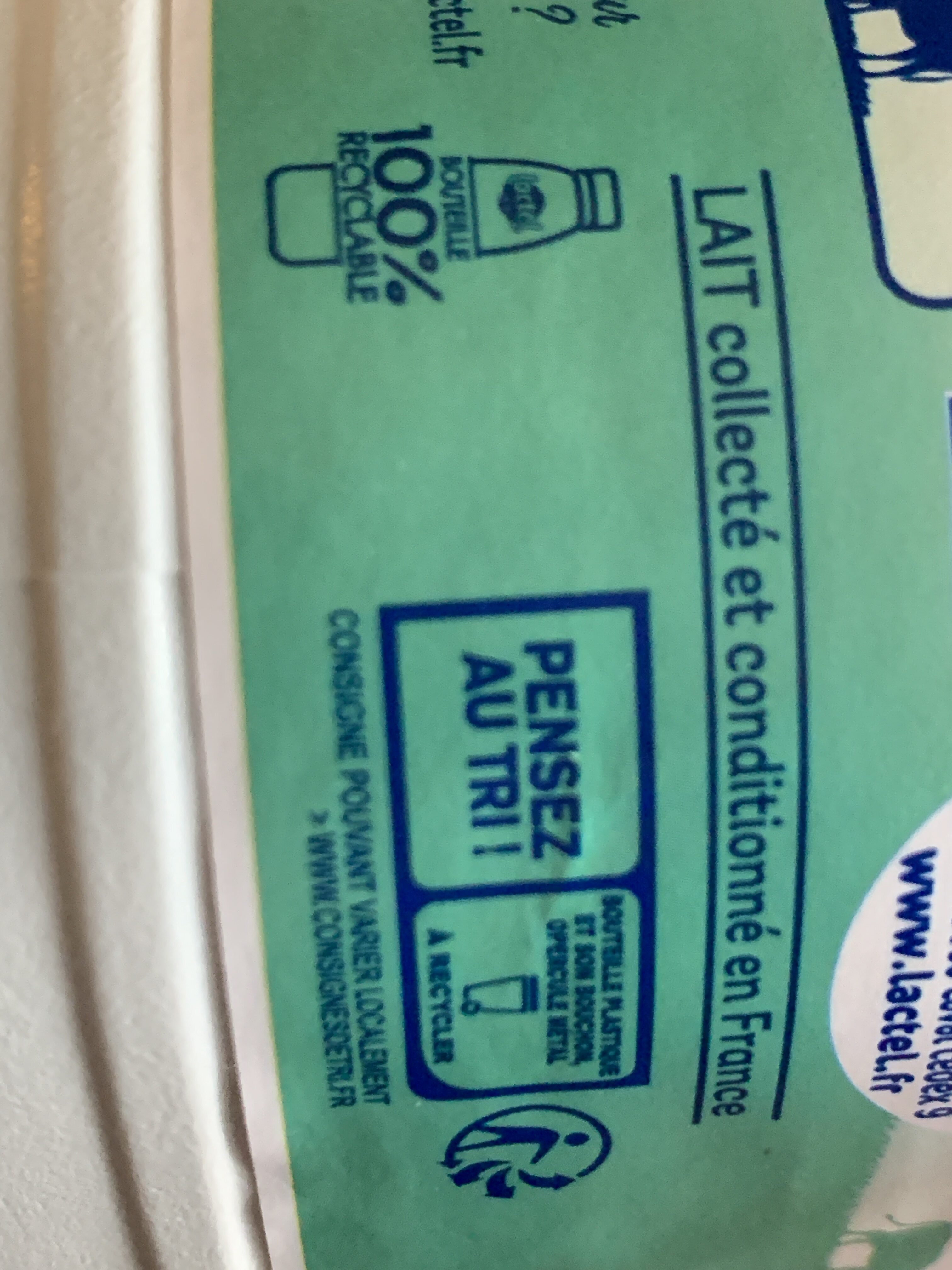Matin léger - Lait sans lactose - Lactel - 50 cl
Barcode: 3428273090011 (EAN / EAN-13)
Common name: Lait écrémé stérilisé UHT à teneur réduite en lactose (<0,5 g/100 ml) et enrichi en vitamine D - Matin Léger Écrémé
Quantity: 50 cl
Packaging: fr:Bouteille - bouchon et opercule à recycler, fr:Film plastique à jeter, fr:Opercule en métal
Brands: Lactel, Matin Léger
Categories: Dairies, Milks, Homogenized milks, UHT Milks, Skimmed milks, Lactose-free milk, Low-lactose milk
Labels, certifications, awards: No lactose, Eco-Emballages, Enrichi en vitamines, Garantie IPLC, Peu ou pas de matière grasse, Point Vert, Sans lactose, Sans matière grasse
Origin of ingredients: France
Manufacturing or processing places: Société Laitière de l'Hermitage (Filiale Groupe Lactalis) - Place de la Gare - 35590 L'Hermitage, Société Laitière de Vitré (Filiale Groupe Lactalis) - Les Guichardières - 35500 Vitré, Ille-et-Vilaine, Bretagne, France
Traceability code: FR 35.131.001 CE - Hermitage (Ille-et-Vilaine, France), FR 35.360.001 CE - Vitré (Ille-et-Vilaine, France)
Link to the product page on the official site of the producer: http://www.lactel.fr/nos-produits/matin-...
Stores: Banque alimentaire
Countries where sold: France, Switzerland
Matching with your preferences
Report a problem
Data sources
Product added on by openfoodfacts-contributors
Last edit of product page on by jusdekiwi.
Product page also edited by beniben, date-limite-app, desan, ecoscore-impact-estimator, foodrepo, inf, ishi, jacob80, kiliweb, packbot, quechoisir, remilk, roboto-app, yuka.SElFdkFMa0ZyOW9Rd2NKazhURFhxK0pheTVXbGYyT1RldkV1SVE9PQ, yuka.UTVvRFRZWXpoc2tzd1BSdS95ajg1UFp5MnNHemZIbXdFOE5BSUE9PQ, yuka.VEp3Ykx2d3JxTVlWbnZNdjdoZk4xdjkrOWFhaVJucnJFY3dlSVE9PQ, yuka.WlBvTk81UmVuZkpWcC9Oai95M0U0dXgybHNEMlVuR2xOc0ZJSVE9PQ, yuka.YW9BREZQaytsc2hibE1Zam9URFYyZFJjKzV6MlRXMjZGUE1TSWc9PQ, yuka.ZWFzbE00SXRqOTlSeTh3LzV6VFBvL1I2OW83d0RGbW9ON29CSWc9PQ.
